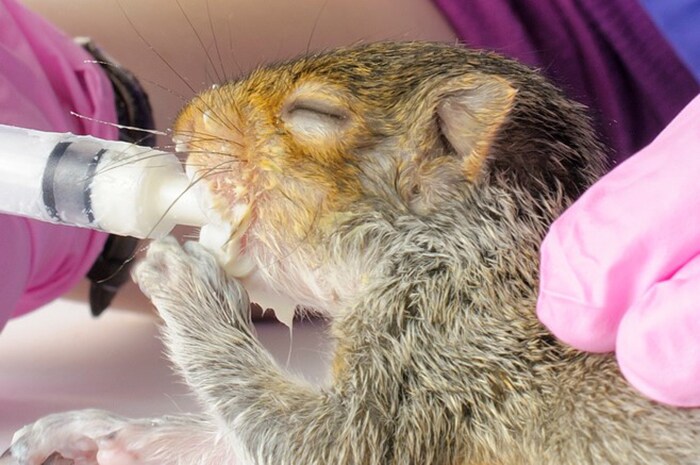LRN Lab Quickly Identifies Dangerous Pathogen and Saves Patient’s Life
Oregonian Exposed to Francisella tularensis
In spring 2018, an Oregon resident arrived at an urgent care center with a fever, chest pain, body aches, and vomiting. Her physician suspected bacterial pneumonia and prescribed an antibiotic. What the clinician didn’t know was that the patient had been exposed to a bacterium called Francisella tularensis (F. tularensis), which can cause a life-threatening illness. The bacterium typically attacks the skin, eyes, lymph nodes, and lungs. It is classified as a Tier 1 select agent, which means it can pose a severe threat to public health and is one of a handful of agents that pose the greatest risk of being used for bioterrorism.
Veterinary Lab Sends to LRN Lab for Testing
Before the onset of her symptoms, the patient was caring for a sick squirrel and hand-feeding it with a syringe. The squirrel died soon after the patient began experiencing symptoms, and she brought the rodent to a veterinary lab for testing. After conducting preliminary tests, the lab suspected the squirrel had F. tularensis and notified the state public health laboratory, which is part of CDC’s Laboratory Reference Network (LRN).
CDC’s LRN provides an adaptive and scalable lab framework so labs can respond to local threats, such as this one. In addition, through CDC’s Public Health Emergency Preparedness (PHEP) cooperative agreement, CDC supports lab staffing, testing materials and training—all of which the state relied on in identifying the cause of this patient’s illness.
Patient’s life Saved
After being notified by the veterinary lab, LRN staff arranged for same-day transport of the sample to the LRN lab. Within hours, the LRN lab had confirmed and notified partners that the sample was F. tularensis, enabling the physician to treat the patient successfully. “If the patient delayed seeking treatment any longer, or if there were delays in notifications or follow-ups, I think this case could have very easily gone in a bad direction,” said Oregon LRN Coordinator Robert Nickla. Having a well-equipped, staffed lab with access to advanced technology through CDC’s LRN network was critical in saving this patient’s life, and ensuring a rapid response.”

Feeding a squirrel with a syringe